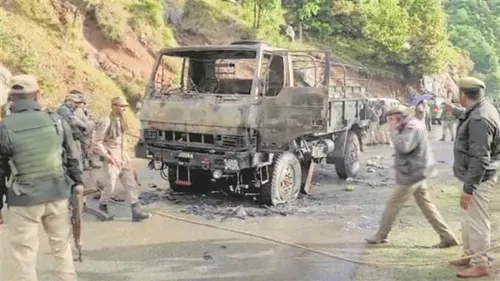Poonch-Rajouri regions saw 40 terrorists; intelligence and security grids were reinforced.

Amid recent attempts by Pakistan-backed terror groups to revive terrorism in areas south of the Pir Panjal ranges in the Jammu sector, it is emerging that there are around 35-40 foreign terrorists active in the area and operating in small teams, with two-three in each one of them.
Sources in the security forces told ANI that the assessment of the number of terrorists is based on the inputs received from the intelligence agencies along with forces operating on the ground.
The foreign terrorists, who are suspected to be former Special Services Group members from the Pakistan Army, have been trying to revive terrorism in the Rajouri, Poonch, and Kathua sectors of the Jammu region for around three years, the sources said.
The most recent attacks have been in Reasi and Kathua, where they attacked Hindu pilgrims and security forces.
The sources said that in the recent security review meetings, it was observed that there was a need to further strengthen the second-tier counter-terrorist grid in areas along the international border to plug infiltration attempts.
The sources further said that the counter-infiltration grid in the hinterland in the south of the Pir Panjal ranges can be brought to similar levels as the multi-tiered counter-infiltration and counter-terrorist grid in the areas along the Line of Control (LoC) in the Kashmir region of Jammu and Kashmir.
The intelligence agencies have also been working towards upgrading the human intelligence and technical intelligence gathering in the area, the sources said.
The Indian Army has also brought in additional troops in the last few months who have been operating in the area, along with a large number of armoured specialist vehicles.
The forces have around 200 armoured vehicles in the area, which were acquired under emergency procurement procedures by the force that they use to move around in their areas of responsibility with Quick-Reaction Teams.
The forces have been given a free hand to operate in the area against terrorist support infrastructure and there is a likelihood of strong action against such elements, the sources said.






